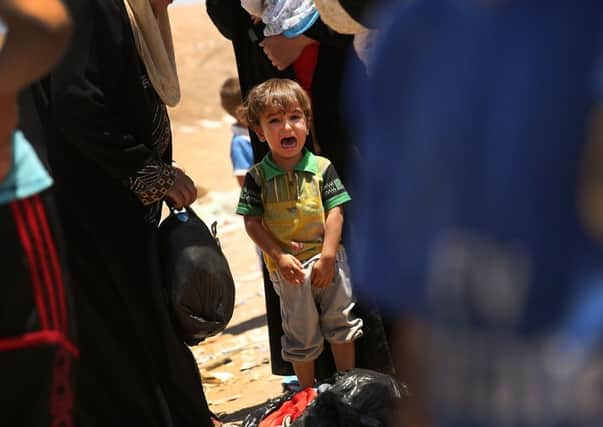Iraq: Hopes of swift action fade after deadlock


The Sunni insurgents’ advance, which has plunged Iraq into its worst crisis since the last US troops left in 2011, appears to have peaked for now as it comes up against majority Shiite areas and seeks to consolidate its control of the territory it has gained.
The militant onslaught – which has tapped into deep-seated grievances among the country’s Sunni minority with prime minister Nouri al-Maliki’s Shiite-led government – has made the formation of a new government that can hold the country together and confront the threat a pressing concern.
Advertisement
Hide AdAdvertisement
Hide AdActing speaker Mahdi al-Hafidh ended the proceedings after most of the 328-seat legislature’s Sunni and Kurdish members did not return from a short break, depriving parliament of a quorum.
The entire session, from the opening national anthem to Mr Hafidh’s closing words, lasted less than two hours.
The impasse prolongs what has already been days of intense jockeying as political blocs try to decide on a new prime minister, president and speaker of parliament. The country’s top Shiite cleric, Grand Ayatollah Ali al-Sistani, last week urged politicians to agree on the three posts before yesterday’s meeting in hopes of averting months of wrangling that could further destabilise the country.
Under an informal system that took hold after the 2003 US-led invasion, Iraq’s prime minister is chosen from the Shiite community, the president from the Kurdish minority and the speaker from the Sunni community. The main sticking point currently is the job of prime minister, which holds the main levers of power.
Mr Maliki, who has held the post since 2006, is being pressed to step aside. Sunnis and Kurds, both of whom accuse Mr Maliki of breaking promises and attempting to monopolise power, demand that he be replaced.
But Mr Maliki has shown no willingness publicly to bow out. His bloc won the most votes in April’s elections, which should give him the first opportunity to form a new government.
The current crisis in Iraq, however, has altered political calculations, and many of Mr Maliki’s former allies – and even key patron Iran – have begun exploring alternatives to replace him.
Mr al-Maliki has a track record of outmanoeuvring his rivals to retain power.
Advertisement
Hide AdAdvertisement
Hide AdSunni politician Hamid al-Mutlaq said the Sunnis walked out of yesterday’s parliament session because they felt they needed more time to reach a “serious understanding with others on how to run this country and change the course that has led the country to the current disaster”.
He said: “We do not want only to discuss the distribution of posts and the names of the candidates. Rather, we think we need to discuss how to change the behaviour of the failing government.”
“We did not want to give some people the chance to make the parliament session a race for posts.”